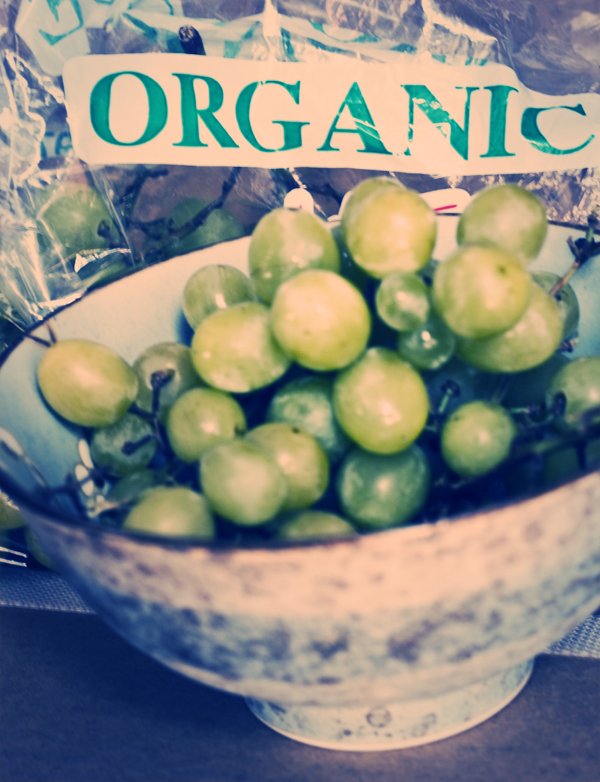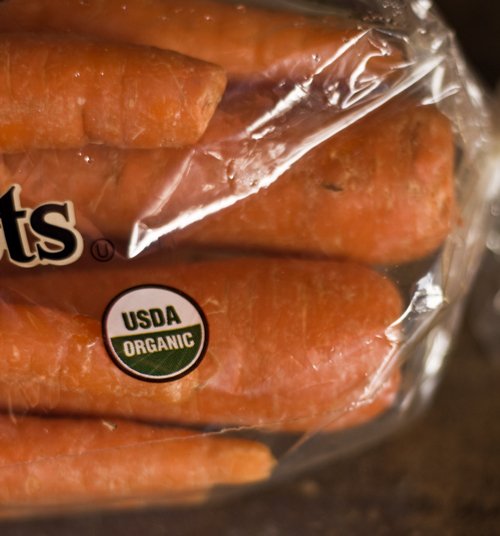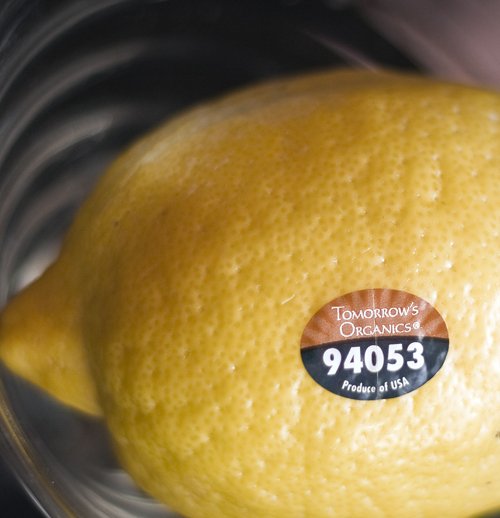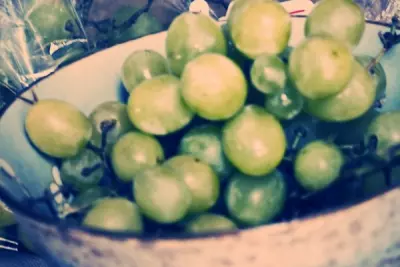 I made the switch to (mostly) homemade beauty, skincare, and haircare products after going through “the change.” There was much sweating, crying, and raging about the house. And, no. It wasn’t menopause.
I made the switch to (mostly) homemade beauty, skincare, and haircare products after going through “the change.” There was much sweating, crying, and raging about the house. And, no. It wasn’t menopause.
It was reading books (Real Food by Nina Planck) and movies (Food, Inc.). They forced me to go through “the change” and stop eating horrible foods produced by seriously unhealthy means. Buying local, organic, and cruelty-free as much as humanly possible wasn’t just a choice anymore – it was a requirement.
So as I started the switch, I took a look at my beauty products and realized just how terrible they were, too. They were full of unpronounceable chemicals, some of which are widely known to cause cancer, hormonal imbalance, and worse. And the old saying just kept coming back to haunt: Never put anything on your skin that you wouldn’t put in your mouth.
(The hardest part was when I stopped putting Doritos in my mouth – no more Dorito facial masks for me!)
So couple that with my innate desire to mix together crazy foods and experiment with it on my own face, and I was hooked.
But there’s one thing, in all of this, that I haven’t touched on, and that’s the importance of using organic foods in these recipes as much as humanly possible*. Here’s why.
Nonorganic foods contain toxic pesticides and fertilizers that contain all sorts of horrible chemicals. These chemicals, in turn, promote aging – amongst even worse skin issues. If the point is to get away from chemicals, using nonorganic foods almost (but not quite) defeats the purpose. While most of the ingredients of homemade beauty products also contain antioxidants that help with this issue, why not just save those antioxidants for your fresh skin, rather than employing them to undo damage done by pesticides, herbicides, and fertilizers?
Growing practices of nonorganic foods REALLY hurt the environment. Yet another reason to make the switch* to organics – both for your face and for your body. When you purchase organic foods, you’re supporting sustainable, healthy growing practices. Every purchase you make in the world is a vote of how you would like to see the world run. If you vote the other way and toss nonorganic produce in your cart, you’re supporting the “bad guys” who continue to saturate the population with scary, scary stuff. Let’s make our food as happy as we want to be!

Organic foods are higher in the vitamins, minerals and antioxidants that promote that healthy glow! You may recall a study that came out last year saying that organic fruits and veggies are no more nutritional than nonorganic ones. Hogwash! Organic foods must be grown in soil that is well-kept, given a break, and allowed to replenish its natural vitamin and mineral content. Plants are no different than humans: They are what they eat. And if they’re eating from overworked, unreplenished soil, they’re going to be much more devoid of the things they’re naturally supposed to have.
Call me a skeptic, but I’m SO hesitant to believe most “studies” that come out these days, after learning how often these are sponsored by the big corporations that will benefit from the studies’ outcomes, and then when results run contrary to what the corporations want, they throw those results out. I could go on a rant about this for days, but that’s not what this post is about. I’ll hush. For now.
Buy local and organic, and you’ve got the superest foods ever. Fresh produce loses its potency the longer it sits and the farther it travels. When you buy local and organic, you’ve got the most vitamin- and mineral-packed foods available. Plus, you’re supporting local economies – good for you and your neighbors. And guess what? It’s okay to buy local and nonorganic, especially if you’re buying from a smaller farm. Most of these farms use sustainable, healthy growing practices – they just can’t afford organic certification (so they’re not allowed to say they’re organic). Go to your farmer’s markets. Ask questions. Not only will you learn, but you’ll meet some awesome, down-to-earth people.
*Now for the all-encompassing caveat: I know that organic is more expensive, and sometimes you just can’t swing it. That’s okay. It’s better to use nonorganic homemade recipes than to buy store-bought cosmetics (the nonorganic, chemically-laden kind). Wash your fruit and veggies VERY well, and you’ll be better off.
And this is supposed to be about fun! So don’t think this is a lecture. This is food for thought. (Will the puns ever stop coming?) Take it as you will, but don’t stop putting food on your face because you don’t have organics!

Give me one more moment, and I’ll be off of the soapbox: You always have choices in life, and those choices always mean sacrifices in another way. It’s the yin-yang. I made the decision a year ago that nothing was going to be more important than the quality of food that I bought, and that meant giving up other things that I wanted. I don’t regret it, at all. Because, ultimately, you are what you eat, and if you’re eating healthy and happy food, guess what you are?
It puts you in a better position to go out and accomplish the things you really desire. (Although, don’t get me wrong – I’ll go food coma from super nachos at the local Mexican taqueria any day.) Everything in moderation.
—
What do you think about the controversy between organic vs. nonorganic foods? Do you have any tips to buying organic on the cheap? And do you think the stress on using organic foods will keep you from trying your own at-home skin and haircare products?
In love and crunch!


 Moisturizing Corn Milk and Lavender Facial Toner
Moisturizing Corn Milk and Lavender Facial Toner
So this reply is a little late compared to others, but I just discovered this blog today and am already in love! I hope it actually gets read, but maybe not. I was looking for homemade gift ideas and am already getting my list together for the body products. These all sound amazing and can’t wait to try them out.
I wanted to respond on the organic/nonorganic issue. I am an analytical chemist and have read up on this topic because I believe it is something as a scientist I should know more about than the average consumer. I will also say that I don’t get my information from magazine articles or even the news but from real, peer reviewed, scientific journals. And even then I am very critical of what I read because you never know what kind of agenda people may have or if there could be gray areas of the research they have done. All that said, this is what I think of “research” that is out there about organics. As for organic foods having better nutrition, I have seen studies either way. Because of this, I think, as well as other researchers out there, that nutrient content depends more on growing and harvesting conditions rather than organic or nonorganic conditions. Also, whether or not some foods have higher amounts of pesticides or not can depend on the type of course, but also how the foods were sampled for testing. Were they washed thoroughly before testing, just like we would at home, or taken as is? Was just the outer part tested, the inner, or the whole food ground to get a representative sample? And these are just a few of the questions I would ask myself when reading an article.
All that said, what do I prefer? Stuff from my own garden if I can get it. If I can buy at my farmers market, I will. If it is on sale at the grocery store, I will buy organic. If it doesn’t fit in my budget, I will buy whatever else is on sale then.
As for other products (beauty and household) I just try to go cheap, which means making my own stuff! I try to not get caught up in the whole scared of chemicals thing, because what is everything anyways, but chemicals? (baking soda – sodium bicarbonate, almond oil – the biggest mix and long crazy sounding triacylglycerols you’ll find, vinegar – acetic acid, vitamin E – a mix of alpha, beta, gamma, and delta tocopherols, essential oils – a mashup of aldehydes, ketones, terpenes, phenols, esters, etc.) Yes, there are bad chemicals out there, but I try to keep myself informed on research on these different chemicals to know what I should stay away from.
For me it comes down to simple and cheap. And thanks again for these recipes, I absolutely cannot wait to have some fun with this.
And ps – I am working on your direction to make my own products. I do, however, try to use better stuff on my face but Im not so good about it on my hair. My face cream is from Origins as I really want to make it pretty. it is, after all, getting old. It will turn 40 soon!!
And PS to you, too: Origins is one brand I do use (when I can afford it). My sister got me some cleanser for Christmas a couple of years ago, and I was hooked. I use their Modern Friction face scrub stuff in the shower twice a week — and it has lasted FOREVER. Love that about it, too.
But, still. Nothing beats putting real food on your face (and hair and the rest of your body), if you’re looking for fun AND pretty.
*Sigh* my soulmate
Ok – here is my take – I buy organic when it is available and when it is prudent (read cost effective) There are a few foods I try to ALWAYS buy organic – apples, potatoes, peaches, spinach etc (mainly the dirty dozen) without worrying so much about others (bananas etc). When I can get to the Farmers Market, I will buy locally produced milk and cheeses as that is as important to me as the organic label. I know a lot of our farmers cant afford to go through the process to become “officially” organic but use humane practices.
The other biggie for me is fish. I try to buy at least 50% of our fish from Whole Foods so I know it was obtained in a sustainable way. (especially salmon and sea bass). I dont fret as much about mahi and shrimp.
Like you said, moderation baby!
🙂
See, that’s exactly how I do it, too (of course, since we ARE soulmates). The dirty dozen are cemented into my brain. Strawberries and blueberries are the toughest, though, since organic tends to be SO much more expensive (and they’re not grown locally).
You’ll have to slip me some really tasty fish recipes, because THAT’S one thing I’ve had a hard time getting into, and it’s sooooo important (especially when you read about kids and how much “better” they are with a healthy dose of omega-3s on a regular basis). I have my staple fish that I will eat: Ahi, salmon, and sometimes mahi, but I hate the texture of most fish, so I conveniently forget about them.
I love this post! I started buying organic/local/humanely raised/etc. food to eat years ago, but never really thought about my skin care products. I’m just now switching to natural products for my skin. I hate to think of all the crap I’ve absorbed through my skin, and while I was pregnant too. Yuck!
I love Farmer’s markets for organic products. You’re right, most of them just can’t afford the certification.
I read a study recently, and I can’t recall where, but it said that they have indeed found organic produce does have more nutrients and is healthier overall than pesticide filled stuff.
If you run across that study again, share it, yeah? (Although I can’t be so hypocritical as to just cite studies I agree with and then poo-poo the ones I don’t, right? That would be … corporate.)
I know what you mean about looking back and realizing how much crap you’ve put on/in your body. I’m sad to say, I still do it with Diet Dr Pepper. It’s definitely my worst vice, though I’m down from a 12-pack a day (5 years ago) to one every two or three days. Still. Man.
But such is history, I guess. You learn and then teach your kids, and then hopefully they’ll be more healthy (and balanced) than you were.
I just wanted to let you know that I tried the Mocha-Frappucino Mask: Coffee, Cocoa, and Honey Facial Mask and loved it!
If I haven’t mentioned it a million times already, you’re the wind beneath my wings.
Kids, go here. Read this. You will LOVE it (and be so happy at the last picture)!